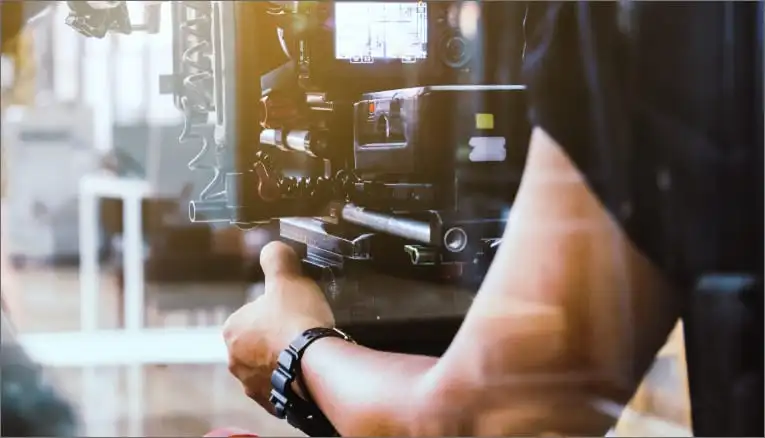Documentary Filmmaking and Ethical Considerations
Documentary filmmaking is a powerful medium that allows filmmakers to shed light on important social issues, share untold stories, and provoke meaningful conversations. However, it is crucial for documentary filmmakers to approach their work with a strong ethical framework, especially when conducting interviews. In this article, we will explore the key principles and best practices for conducting ethical documentary interviews.
1. Research and Prepare
Before conducting any interview, thorough research is essential. Familiarize yourself with the subject matter, the interviewee’s background, and any relevant context. This will not only help you ask informed and relevant questions but also demonstrate your respect and commitment to the interviewee and their story.
2. Establish Trust and Build Rapport
Building a strong rapport with your interviewee is crucial for fostering trust and encouraging open and honest communication. Start by introducing yourself, explaining the purpose of the interview, and addressing any concerns or questions the interviewee may have. Make them feel comfortable and valued throughout the process.
3. Obtain Informed Consent
Informed consent is a fundamental ethical principle in documentary filmmaking. Clearly explain the purpose of the interview, how the footage will be used, and any potential risks or consequences. Ensure that the interviewee understands their rights and has the opportunity to ask questions or withdraw their consent at any time.
4. Respect Boundaries and Privacy
Respect the boundaries and privacy of your interviewee. Be sensitive to any topics or questions that they may find uncomfortable or invasive. If the interviewee expresses discomfort or declines to answer a certain question, respect their decision and move on. Remember, the well-being and dignity of your interviewee should always be a priority.
5. Maintain Transparency
Be transparent about your intentions as a filmmaker. Clearly communicate your goals, the intended audience, and the overall purpose of the documentary. This transparency helps build trust and ensures that the interviewee understands the potential impact of their participation.
6. Provide Emotional Support
Documentary interviews can often delve into sensitive and emotional topics. As a filmmaker, it is important to provide emotional support to your interviewee throughout the process. Be empathetic, listen actively, and offer resources or referrals if necessary. Check in with them after the interview to ensure their well-being.
7. Avoid Manipulation or Sensationalism
Maintain the integrity of your documentary by avoiding any form of manipulation or sensationalism. Your goal should be to present an accurate and authentic portrayal of the interviewee and their story. Avoid leading questions, editing techniques that distort the interviewee’s words, or any other practices that compromise the truth.
8. Protect Vulnerable Populations
When working with vulnerable populations, such as children, survivors of trauma, or marginalized communities, it is crucial to exercise extra care. Ensure that proper safeguards are in place to protect their well-being, privacy, and dignity. Consider working with experts or organizations that specialize in supporting these populations.
9. Seek Feedback and Collaboration
Throughout the documentary filmmaking process, seek feedback and collaboration from your interviewees. This not only allows them to have a say in how their story is portrayed but also ensures that their perspectives are accurately represented. Show them the final product if possible and consider incorporating their feedback.
10. Reflect on Your Own Biases and Privileges
As a documentary filmmaker, it is essential to reflect on your own biases, privileges, and potential impact on the interviewee and the story being told. Be aware of power dynamics and strive for inclusivity and fairness in your approach. Continuously educate yourself on cultural sensitivity and ethical practices in documentary filmmaking.
Conclusion
Conducting ethical documentary interviews is a responsibility that documentary filmmakers should embrace. By following these principles and best practices, you can ensure that your interviews are conducted with integrity, respect, and empathy, ultimately creating impactful and socially conscious documentaries.
Key Takeaways:
- Thorough research and preparation are essential before conducting documentary interviews.
- Building trust and rapport with interviewees fosters open and honest communication.
- Informed consent is crucial, and boundaries and privacy must be respected.
- Transparency about intentions and emotional support for interviewees are important.
- Avoid manipulation or sensationalism to maintain the integrity of the documentary.
- Special care must be taken when working with vulnerable populations.
- Seek feedback and collaboration from interviewees to accurately represent their perspectives.
- Reflect on personal biases and privileges to approach interviews with inclusivity and fairness.
Conducting ethical documentary interviews requires a strong ethical framework and adherence to best practices. By following these principles, you can create impactful and socially conscious documentaries that respect the dignity and well-being of your interviewees.
If you’re interested in further developing your skills in documentary filmmaking, consider exploring the online courses and certificate programs offered by NYU | Modern Journalism through Yellowbrick. These programs can provide valuable insights and practical knowledge to enhance your documentary filmmaking journey.








